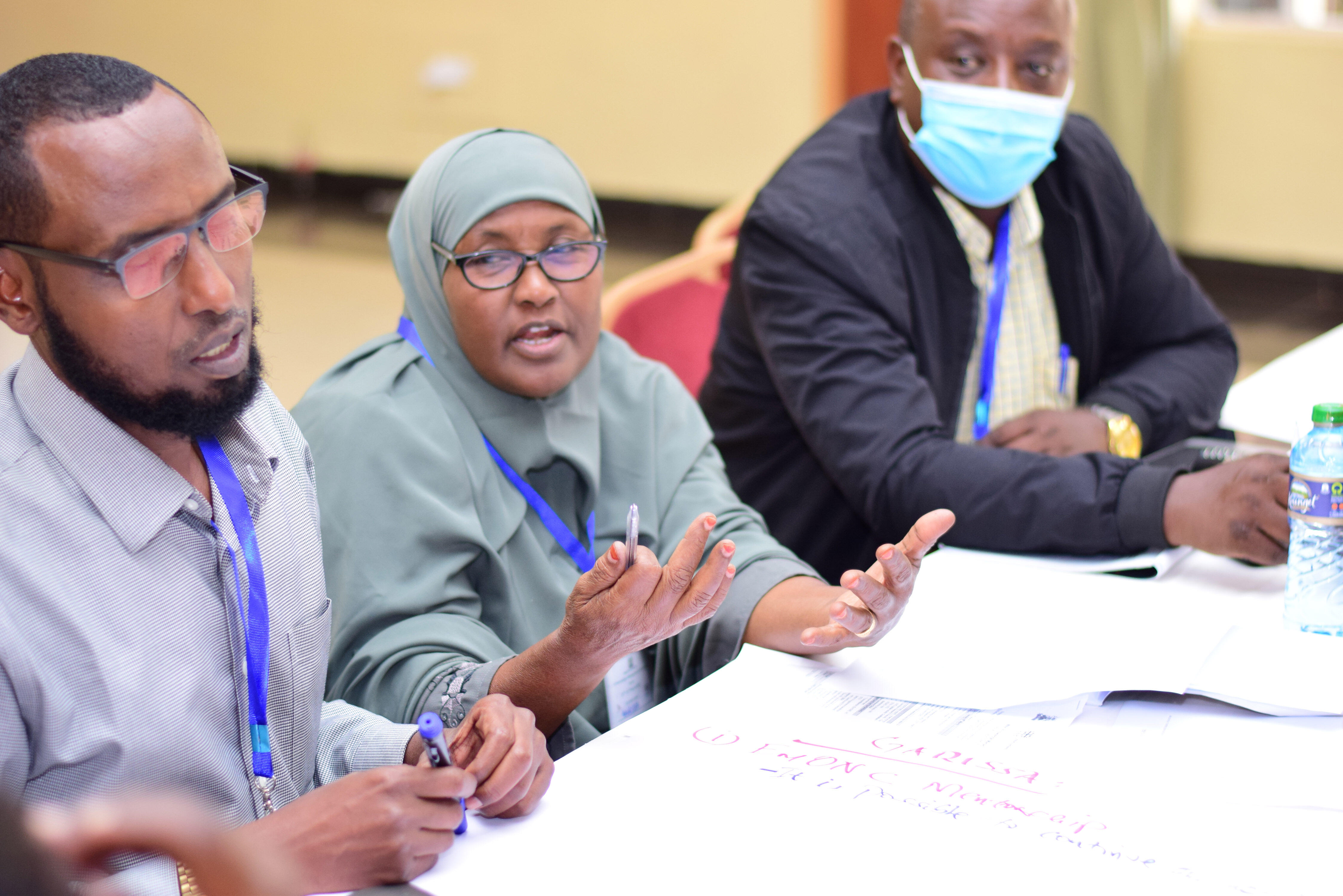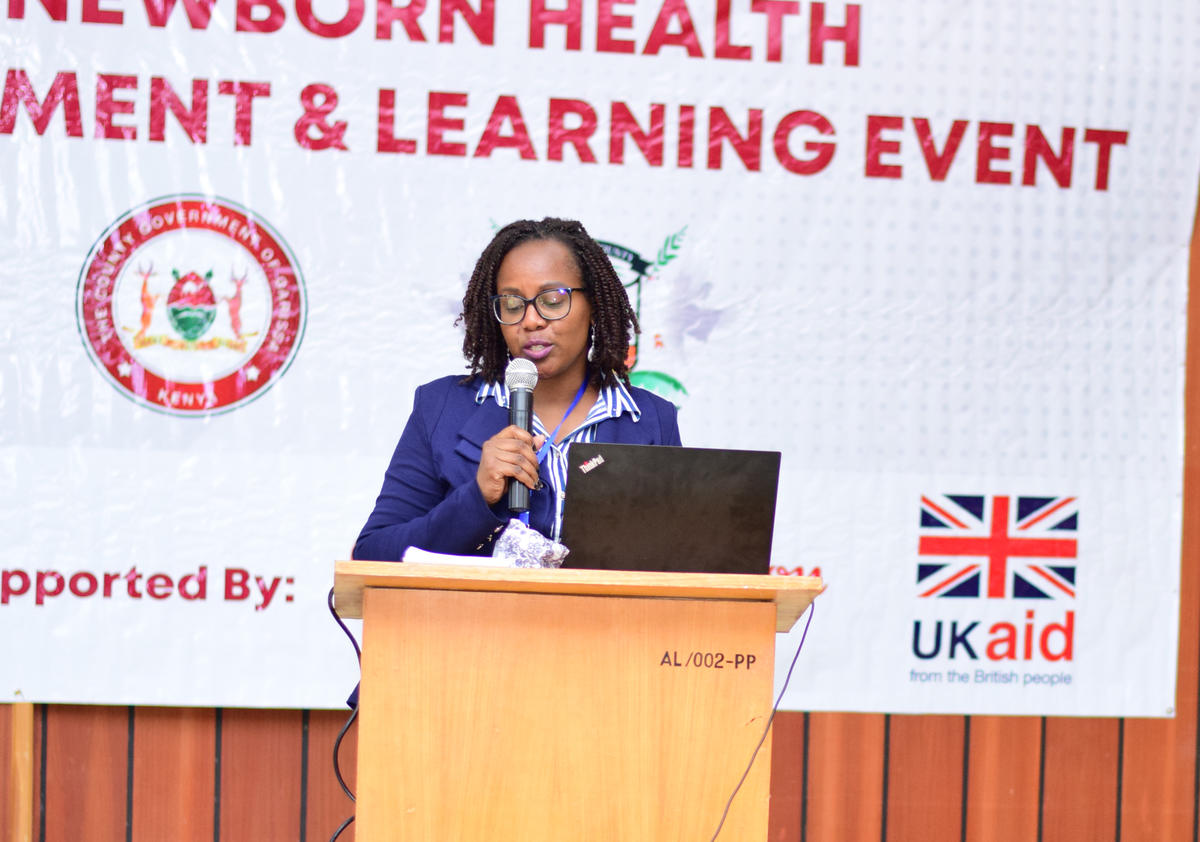
The Emergency Obstetric Care and Quality of Care unit at LSTM has been conducting implementation research under the £13M UK Foreign, Commonwealth and Development Office (FCDO) programme ‘Reducing Maternal and Newborn Deaths in Kenya’ (2014-2023). Over the past 2 years, COVID-19 brought challenges and a steep learning curve for the programme, our partners, and the health systems. Our key partners, including health facility managers, health care providers, national and sub-national government, training institutions, professional associations, health worker regulatory institutions and academic institutions responded by sharing knowledge, insights, best practices, and research findings during the first of four planned Knowledge and Management Learning (KML) events. The event, held on the 15 and 16 March 2022, was hosted by Uasin Gishu County, one of LSTM’s focal counties. In addition to participation by stakeholders from Uasin Gishu County, our key partners, Reproductive Health Managers, donor representatives from FCDO, USAID and the Johnson & Johnson Foundation, and technical staff from 7 other counties participated in the event.
In recent decades, the world has made significant progress in reducing maternal and newborn mortality, but newborns and mothers are still dying in unacceptably large numbers – mostly from preventable or treatable causes, such as infectious diseases and complications during pregnancy or childbirth. Uneven access to affordable, high-quality health care and services impedes many countries from improving maternal and newborn survival and reducing stillbirths.
The Demographic and Health survey (2014) reported Kenya’s MMR to be 362 per 100, 000 live births. According to modelled estimates by the Maternal Mortality Inter-agency working Group, Kenya’s MMR reduced to 342 per 100,000 live births in 2017; given an annual rate of decline of 3.3%, the MMR would be 215 by 2030 still below the Sustainable Development Goal (SDG) target of less than 140 per 100,000 live births. In Kenya, the Perinatal Mortality Rate is 22 per 1000 live births against an SDG target of 12 per 1000 live births. With nearly a decade since devolution, sub-national governments have a greater responsibility to accelerate efforts in the race to achieve SDG 3 targets.
LSTM’s Response
All babies and mothers are entitled to affordable, high-quality health care before, during and after pregnancy. With funding from FCDO, Global Fund and Johnson and Johnson, LSTM Kenya works in partnership with the Ministry of Health, county governments, preservice regulatory and training institutions to improve maternal and newborn health (MNH) outcomes. Our cutting-edge work supports research on ways to reduce maternal mortality/morbidity through improving quality of care. We combine rigorous research with capacity strengthening and technical support to optimise impact, getting evidence into practice and policy. Our strategic partnerships with policy makers and local research leaders ensure research is relevant to local needs and informs policy considerations.

The first KML event was an opportunity for knowledge sharing and rich candid conversations that would inform future interventions within the wider MNH landscape. The key-takeaway messages are:
1. Pre-service capacity building of health care workers in MNH
Pre-service training curricula should be reviewed and updated regularly, involving multiple stakeholders, to ensure it contributes to the Universal Health Coverage targets for a resilient health workforce. For educators, there is an urgent need for a system that provides opportunities to improve their skills and confidence in delivering the updated competency-based Emergency Obstetric and Newborn Care (EmONC) enhanced curriculum. LSTM has developed a midwifery educator Continuous Professional Development (CPD) system, which will be launched and evaluated in a multi-country study in the final year of the programme.
2. In-service capacity strengthening for health care workers in MNH
Strengthening the capacity of health systems through targeted interventions at all levels – policy, county and facility contributes to positive maternal and newborn outcomes. A continued response to identified capacity gaps in MNH through implementation of EmONC training, functionality assessments and Maternal and Perinatal Death Surveillance and Response (MPDSR) at the health facility is critical. LSTM has support institutionalization of process to ensure these are embedded in the Kenyan Health system.
3. Maternal & Perinatal Death Surveillance & Response (MPDSR)
MPDSR is an important quality improvement approach. Institutionalized audit of maternal and newborn deaths at facility level presents useful lessons to avert future occurrences. There is positive progress on data capture and review of maternal deaths in all project sites. Although progress has been made in the performance of perinatal deaths reviews, the coverage remains relatively low. Strategies to improve perinatal death reporting and review by MPDSR committees were discussed and agreed during the event.
Health care providers and their patients thrive on continued learning. Lessons learned from peers are among the most useful and the most powerful. LSTM will continue to encourage and support all forms of dialogue and knowledge exchange to advance Maternal and Newborn health in Kenya. Look out for our next MNH Knowledge Management & Learning event in the coming months.